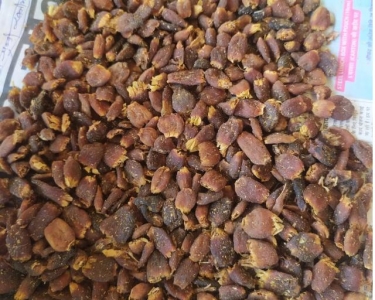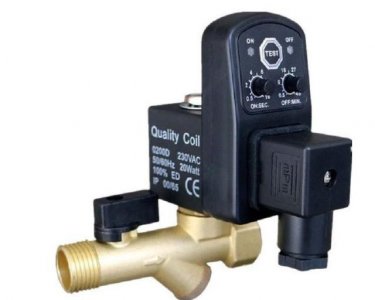Heavy Industrial Motors
Couldn't find the product you want?
Fill out this form to request the product.
Products You May Like
Export from Canada
Export Portal "Export in Canada" Department proudly showcases a myriad of products and services that are designed and made in Canada. We are your top online source for listings of Canadian products, as well as for finding and establishing business relationships with Canadian Exporters, Canadian Manufacturers, Canadian Companies and Canadian Suppliers.
Export Portal's foremost mission is to promote Canadian companies and their products on a worldwide level. It is worth mentioning that being the 10th largest exporter in the world, the country is heavily oriented in foreign trade. The primary Canadian exports include motor vehicles and parts, aircraft, industrial machinery, chemicals, plastics, fertilizers, timber, apparel, food & beverage products and many others.
From apparel to watercraft, from simple to sophisticated, Canadian companies offer the world an incredible range of quality products that are in high demand. For instance, Canadian foods, agri-foods and wines are among the best in the world. That's why the country is highly respected across the world for its multitude of fine Canadian made products.
Join Export Portal today to tackle the major world markets or to find the products made in Canada you are looking for. Our portal has solutions designed to help you succeed.
Import to Canada
Export Portal is the world's leading export/import platform, focused on the promotion of products and services in the domestic and international markets. The product and motor catalogs allow companies and simple buyers to search, buy and sell the items in any country of the world, overcoming language and trade barriers.
Canada imports mostly machinery and equipment, motor vehicles and parts, electronics, chemicals, electricity and durable consumer goods. Canada’s main imports partners are United States, European Union, China and Mexico.
If you are interested in importing goods into Canada, Export Portal makes it easy to find trusted sellers and manufacturers and their products in any category, country or region you require. Consult seller's and product reviews written by customers, to make the right purchasing decision. Search for Canadian Companies, American Manufacturers, Chinese Companies, European Suppliers, Latin America's Sellers, Australian Exporters, Africa's Distributors and many others to find the product you were looking for and import it easily and safely in Canada.
Or if you are an international importer looking for Canadian Export Companies, Export Portal can help you. Thousands of Canada's export products and import products are ready for foreign traders and buyers to search them in our classified categories. These Canada Export and Import Products are of high quality and the majority of them are unique, bearing the seal of quality "Made in Canada". Export Portal is your gate to international trade. Get the best deals online!
Heavy Industrial Motors section on Export Portal offers a variety of machines produced by the largest manufacturers. Heavy-duty vehicles are designed for executing construction tasks, most frequently ones involving earthwork operations. These machines are necessary for all the building, mining, and digging works, as well as in agriculture and chemical industries.
Heavy machines usually comprise five equipment systems: implement, traction, structure, power train, control, and information. Heavy trucks function through the mechanical advantage of a simple machine, the ratio between input force applied and force exerted is multiplied. Some types of engineering equipment use hydraulic drives as a primary source of motion.
Standard heavy vehicles categorization includes a diversity of types and models, among which are tractors, excavators, skid steers, combines, dozers, cranes, lifts, cutters.
To buy heavy industrial motor, it is important to consider the following: some contractors place numbers on the side of their equipment corresponding to the category - Grader '02' - followed by a sequential number that usually corresponds to the number it was purchased, for example, 02-112, is the 112th grader a company has purchased since their founding. This allows for easy recognition of the equipment type and the relevant age.
Heavy equipment requires specialized tires for various construction applications. While many types of equipment have continuous tracks applicable to more severe service requirements, tires are used where greater speed or mobility is required. An understanding of what construction equipment will be used for during the life of the tires is required for proper selection.
Tire selection can have a significant impact on production and unit cost. There are three types of off-the-road tires, transport for earthmoving machines, work for slow-moving earth moving machines, and load and carry for transporting as well as digging. Off-highway tires have six categories of service C - compactor, E - earthmover, G - grader, L - loader, LS - log-skidder and ML - mining machines and logging machines. Within these service categories are various tread types designed for use on hard-packed surface, soft surface and rock. Tires are a large expense on any construction project. That's why when you purchase heavy machines, give a careful consideration to prevent excessive wear or damage.
Due to the small profit margins on construction projects, it is important to maintain accurate records concerning equipment utilization, repairs, and maintenance. The two main categories of equipment costs are ownership cost and operating cost. It is good to take into account these costs if you have industrial machines for sale, or want to find a good heavy truck.
Heavy hydraulics also include flushers, delimbers, drill rigs, electric trucks, grinders, harvesters. If you want to buy or sell heavy industrial motors, choose Export Portal for the best deals!
Customs requirements of Canada
Canada Customs Contacts
Website: http://www.cbsa-asfc.gc.ca/menu-eng.html
Phone: 1-204-983-3500/ 1-506-636-5064
Canada is a country situated in North America, which extends from the Atlantic Ocean in the east to the Pacific Ocean in the west. It shares land borders with the USA, and has marine borders with France and Greenland. Canada is the world's 2nd largest country by total area. The country is a member of the Association of Southeast Asian Nations (ASEAN/ dialogue partner), Council of Europe (observer), G7, International Chamber of Commerce, International Monetary Fund, North American Free Trade Agreement (NAFTA), World Trade Organization, World Customs Organization and other international organizations.
Import tariffs
Canada applies import tariffs in correspondence with the Harmonised Commodity Description and Coding System (HS). There are Most-Favoured Nation tariffs, as well as preferential tariff rates. In order benefit from one of these particular tariff treatments, the imported products must meet certification, direct shipment conditions and country of origin markings.
Tariffs are calculated on the basis of the FOB (freight on board) value of the products in the country of export and can be ad valorem. In addition, importers will have to pay a Goods and Service Tax (GST). Duties are collected by the customs authorities at the time of importation.
Product certification and labeling
Most of the imported products do not require licenses and permits. However, some of the imported goods are subject to a quantitative import restriction, and require a permit for importation. These products include:
- agricultural products
- firearms
- textiles and clothing
- steel
Many Canadian provinces restrict the importation of alcoholic beverages.
Regarding labeling requirements it should be mentioned that Canada is officially bilingual, and as a result labeling and packaging requirements have a particular importance. Thus, the Consumer Packaging and Labelling Act requires that all labels be bilingual, written in English and French. In addition, the following details must be indicated on the label/package:
- product identity
- net quantity
- dealer's name and principal place of business.
In Quebec, labeling of food products must be in French or have a French version displayed at least as prominently as the other language.
Concerning packaging requirements, it should be noticed that a certificate of disinfection is required for straw, hay, peat, moss, or other raw packing materials of the soil. Packing materials such as used sacks, bags and canvas are prohibited.
Documents for import
Pro-forma invoice
Commercial invoice
A Canada Customs Invoice (CCI) should be used for all shipments with a freight on board (FOB) value of C$1,600 and over. Commercial invoices can be used but must include all the information required in the CCI.
For all fresh produce shipments, a Confirmation of Sale form is required by the Canadian Food Inspection Agency (CFIA) as evidence that a firm purchase agreement has been made.
Bill of lading
Manifest/Cargo Control Document
Customs Coding Form (Form B3)
The form includes the tariff classification, value for duty and the origin of the products, in addition to other information.
Certificate of origin
Packing list (optional)
Certificate of insurance
Public health requirements
Imports of animals, plants and their products (including fruit and vegetables, other foods, seeds, forest products) require health certificates. These imports are also subject to inspection upon arrival.
Fruit and vegetables, honey, meat, fish and processed foodstuffs are subject to specific regulations. Exporters must confirm with their importers that their products meet the full requirements of the Canadian legislation.
Quality standards and labeling requirements for drugs and patent medicines are prescribed.
Sources:
http://www.cbsa-asfc.gc.ca/trade-commerce/tariff-tarif/menu-eng.html
http://www.international.gc.ca/controls-controles/about-a_propos/impor/canada.aspx?lang=eng
http://canadabusiness.ca/government/regulations/regulated-business-activities/importing-regulations/





